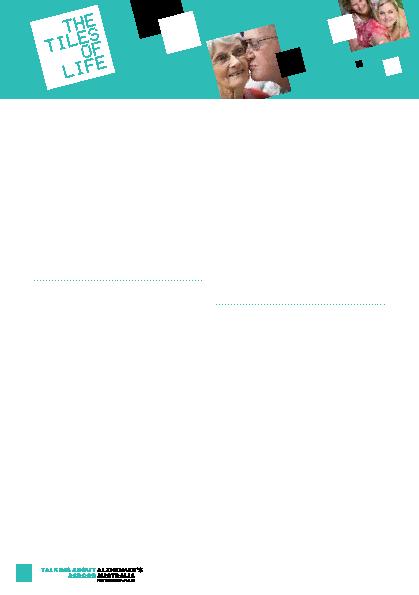
A UK pilot study of acceptability and feasibility
has shown that this tool is acceptable to
people living with dementia in their own home
and to their family carers, and it is also feasible
to use it for staff development and is accepted
well by Community Support Workers and
Care Managers who provide and supervise
in-home services. This presentation will outline
the adapted form of DCM (DCM-SL), the
conduct of observation in a domestic setting,
the structured use of feedback to develop
staff skills and the guidelines for use of the
tool as a mechanism for staff development in
community care in Australia.
Diversity Officer, Alzheimer's Australia Vic
delivery of dementia programs and projects
for Culturally and Linguistically Diverse
communities. The focus is on promoting
enabling factors such as community capacity
building, advocacy, creating settings and
supportive environments, developing personal
skills, reorienting health services, social
marketing, community engagement, and the
role of empowering community members
as change agents to understand and de-
stigmatise dementia.
project case study will be presented. This
involved CALD people living with dementia
and their carers in partnership with schools.
Young students joined in planting healthy herbs
and vegetables sharing reminiscing stories
and knowledge about culture, nutrition, and
new perspective about dementia, validating
and acknowledging that people living
with dementia can participate in a healthy
communal life.
a range of issues including: stigma, social
engagement, promoting awareness, education,
advocacy and empowerment for people
living with dementia, their carers families and
friends as well as the aged care sector. This
is achieved through the diverse projects that
Alzheimer's Australia Vic is undertaking to
reach out and engage with CALD communities.
CaRE CultuRE
Dementia Care Specialist Amana Living
people living with dementia is well recognized
as an effective therapeutic tool.
on their story can enhance their wellbeing
through providing an avenue of structured
reminiscence useful for quiet contemplation,
or to assist in regaining equilibrium when
experiencing feelings of agitation.
respect when shared with others, helping to
ease the frustration of people with who are
struggling to find a way to communicate with
those around them.